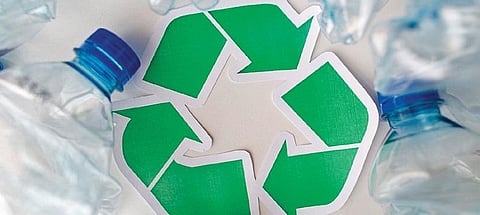

CHENNAI: All of us are hearing the “Corona ring tone” every time we place a cellphone call this past week! The reason the government is doing this is to spread awareness amongst the public quickly on the outbreak and warn people to avoid further spread. While this has been a very effective way to spread awareness in a short time, it can only be deployed during an emergency — such as this one — a worldwide pandemic capable of affecting millions. And yet, in spite of hearing it so many times in a day, how many of us are truly adopting the measures such as washing our hands frequently or avoiding touching our face? These are daily ingrained habits and changing them will take a lot of effort —both in creating lasting awareness and then in terms of adapting to a new behavior.
This is the same with any ‘campaign’ — which is why raising awareness towards any cause is in effect, just another marketing campaign. The principles followed are the same — the greatest weapon is repetitive and relevant exposure to the messaging; the strategies should not annoy or interrupt the target audience. Nobody likes spam. The idea should be placed tactically within a field of view so that it is consumed willingly when the targets become interested. Else, as with the Corona ringtone we will figure that pressing 1 will bypass the ‘wasteful’ one-minute message.
This is a constant trouble with sustainability related causes. We have so many theories, facts, figures and studies that show that we have pushed the planet to its edge. We all understand that there are repercussions to the garbage and pollution that we are spewing onto our planet. It is obvious it is affecting our lives and businesses- but STILL, teaching people to segregate, recycle and not litter, even within a home is a huge struggle. The awareness has to be built into every member of the home — if there are staff handling waste, they have to be trained and if there are new staff joining, the message has to be passed on. It has to become a mantra, something we all chant together religiously in order for it to work. I conducted an audit of the garbage at my home and found that 80-90% of the waste can be recycled, if properly segregated and stored.
If you are intending to start segregating at home but have failed in the past, it is important to understand that firstly, you are not alone. It is also important to truly believe that segregation has great value. The only way to self-realise this, is by engaging in a garbage audit and tracking this for yourself — it helps to build conviction. The next thing to do is by starting small — do not try to recycle, compost and do everything ‘good’ all at once. Teaching your family and your household staff the dos and don’ts takes a while. So, start one at a time and then build up to be a zero-waste household. Remember, when it comes to creating awareness — repetitive and relevant exposure is key – so don’t feel shy to repeat yourself. Think about the Corona Ringtone; if hearing it seven times a day cannot get you to start washing your hands, think how repetitions and persistence is required to become zero waste – Live clean, Live healthy.
Pavitra Sriprakash @pavisriprakash